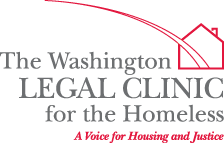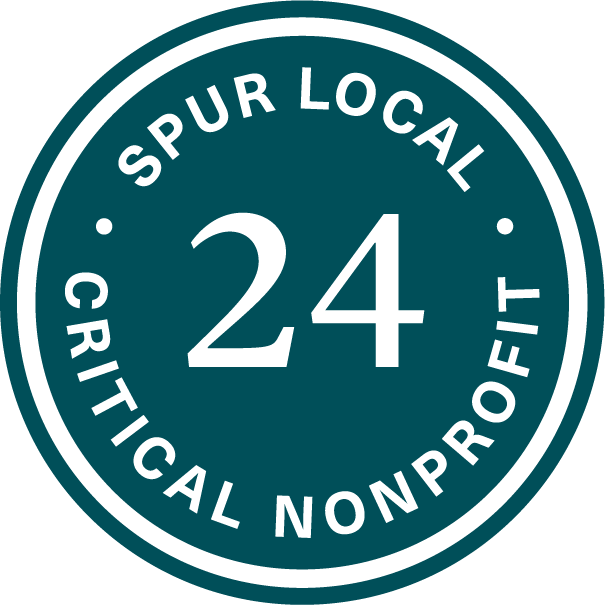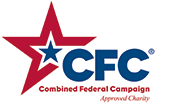To cap the end of National Pro Bono Week, The Legal Clinic thanks our amazing volunteers whose hard work and dedication ensures that nearly a thousand low and no income residents in the District are able to access justice each year.
The following was written by one of our outstanding volunteer attorneys, Erin Kriynovich.
The needs of the homeless population in the District are both great and immediate, and through the Legal Clinic, I believe a significant portion of those needs are being met. Here are five reasons why I believe the Legal Clinic has established an effective system to serve its target population, and why I am honored to do Pro Bono work as a volunteer attorney for the Legal Clinic.
5. The Legal Clinic comes to its clients. By locating intake sites in places where the District’s homeless and low income residents live, spend their days, or seek other assistance, the Legal Clinic provides access to legal services in a familiar environment without the added hurdle or concern of transportation. Another benefit of this structure is that it allows attorneys to cultivate working relationships with staff at the intake sites who often know the clients already. I worked with one client who met regularly with a counselor at the site where I conducted intake. As a result, I was able to meet with the counselor and get a better understanding of the mental and physical health issues afflicting my client, ultimately helping me to provide better advocacy to my client in his disability appeal.
4. The Legal Clinic has a successful model of pairing case counseling attorneys with volunteers. This system reduces caseloads for the small number of staff attorneys, allowing them to become subject matter experts in the practice areas of the Clinic and to focus on the Clinic’s very important advocacy work. At the same time, volunteers can spend less time conducting legal research, often in areas with which they have had little or no experience, and can focus instead on developing the facts of individual cases and on building relationships of trust with clients. The clients benefit from the legal expertise and experience of staff attorneys as well as the contextual knowledge of the volunteer.
3. The Legal Clinic is willing to recognize the non-legal issues that clients bring to the Clinic, and assist as necessary. While most clients come to intake with a discreet legal issue, much of the assistance they need in achieving a full resolution of their case involves more than traditional legal advice or services. It requires creative thinking and knowledge of resources available in the continuum of care. I worked with one family whose voucher had been terminated because their unit did not have utilities, a violation of the family’s obligations under the rules of the Housing Choice Voucher Program. The DC Housing Authority agreed to reinstate the family’s voucher once gas and electricity were restored; however, neither PEPCO nor Washington Gas was willing to restore services due to the family’s outstanding bills. The single father and his teenage daughter had fallen behind on bills after he became ill with tuberculosis and was unable to work after losing his full vision. The family was on the brink of losing their home. Working with the Legal Clinic staff, we were able to identify other sources of public support, such as the DC Office of People’s Counsel, which assisted in negotiations with the utility companies, as well as private sources of charitable donations, and through this combination of efforts, the family’s utilities were restored. Although the legal solution in this case – negotiating with DCHA – wasn’t enough to solve this family’s problem, a more creative solution made the difference. The holistic approach taken by the Legal Clinic made the difference for this family.
2. The compassion of the people associated with the Clinic. In the three and half years I have spent as a volunteer, I have found two consistent traits among the attorneys, staff, volunteers, and board members associated with the Legal Clinic. The first is the genuine respect they have for clients, even when the clients are not present. The second is a belief in and enthusiasm for the mission of the Legal Clinic that is non-wavering.
1. The clients. Clients can be inspiring, and they can be frustrating. But from them I have learned what it means to be an advocate in the truest sense of the word, in ways law schools and traditional legal jobs will never be able to teach. They are advocates for their own survival, and often for the survival of their children and families as well. As challenging as the issue a client has brought to me may seem, the challenge doesn’t begin to compare to the obstacles she has already overcome by the time she is sitting across the table at an intake session, telling me her story. I will never forget a meeting I had with a client one winter evening at the McDonald’s on the corner of 14th and U Street. During our meeting, a man approached our table to ask for money. As I sheepishly told him the truth – that I had no cash with me (a bad habit which I am still resolved to fix), my client reached into the plastic bag that held her most valuable belongings and handed him one of the $8 in her possession. She didn’t hesitate. She just gave. Afterwards, she explained to me that she never thought she would be in this position, and that anyone could find himself in her position, so we have to look out for each other. Her words continue to resonate with me. We are all threads of the same cloth in this universe, and we have to look out for each other. I am grateful that the Legal Clinic has afforded me the opportunity to do that.





